Bihar to Harvard: How This Indian Teacher Taught at Malala Yousafzai’s School & in 18 Countries
“What do you want to grow up to be?” Years ago, when Satyam Mishra posed the question to a young boy from Iraq, he expected the boy’s answer to mimic the most common aspiration of children who grow up in war-affected areas — ‘doctor’. But Woleed was different. He wanted to become an architect.
“And what will you build?” Satyam asked curiously.
“My city of Mosul,” the boy replied, referencing his home city, which had been reduced to rubble in 2016 in what history describes as the deadliest urban combat since World War II. “I will rebuild my city,” the boy affirmed, giving Satyam goosebumps that continue to reappear every time he retells the story. War and destruction, he realised, could uproot cities, but hope would continue to reverberate in the ruins.
That day, in Woleed’s eyes, Satyam glimpsed a reflection of his younger self — the part that was keen on changing the world. Today, at 34, he’s elated at having stumbled upon a possible catalyst — teacher training. The last decade has seen Satyam trot the globe, training teachers to innovate their approaches, build road maps for students, and encourage research-oriented strategies. “If we want to reach every child on the planet, teacher training is the way forward,” he emphasises.
In his chat with The Better India, this Harvard student chronicles the itinerant journey he’s had, spanning 18 countries including Nepal, South Africa, Lebanon, Ethiopia, Nigeria, Portugal, Slovakia, Austria, and Bulgaria.
Bringing a paradigm shift into classrooms and staffrooms
Worldwide, 69 million teachers are needed to reach universal basic education by 2030. As teacher numbers depreciate, children’s futures are caught in the crosshairs. A Forbes report suggests “making improvements to the attractiveness of the teaching profession to hire and retain teaching professionals”. It’s a multi-faceted conundrum, one could argue.
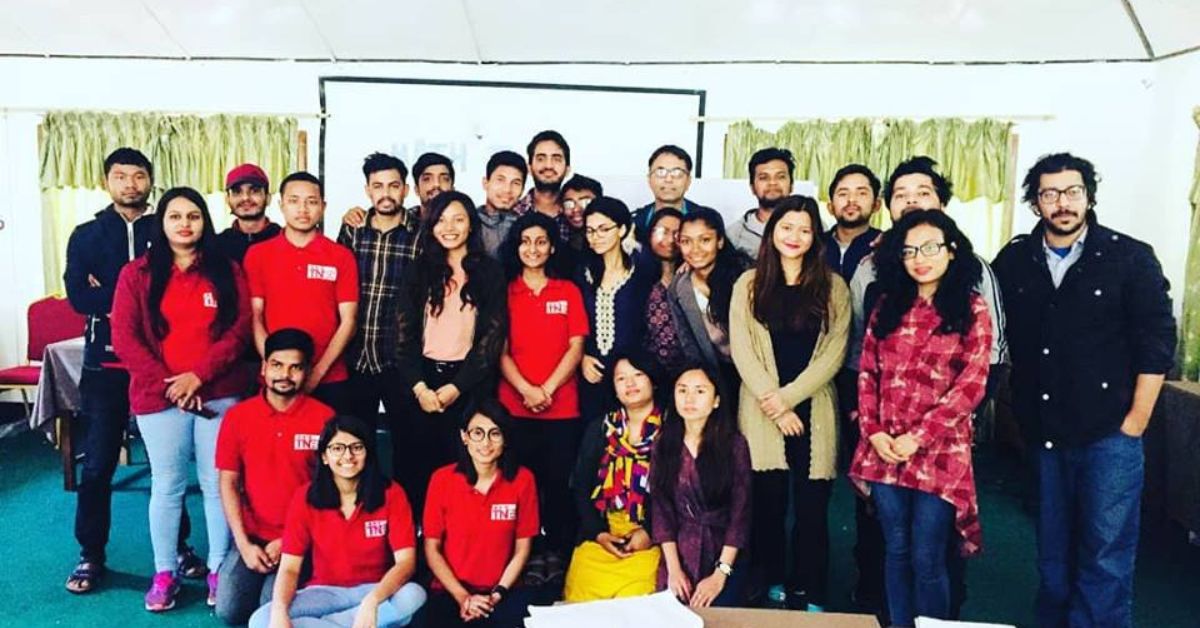 Satyam Mishra, during his tenure at Teach For Nepal where he was part of the team that trained educators across the country
Satyam Mishra, during his tenure at Teach For Nepal where he was part of the team that trained educators across the country
But, even as countries bend their heads over the drawing board attempting to work out a tangible solution, two packed bags in a Harvard dorm room are ready to play their part. Satyam Mishra will graduate in May 2025 and then embark on his next quest — training teachers in eastern India, typically in Bihar and Jharkhand.
The scenario here is grim. In Jharkhand, a third of primary schools are single-teacher ones; while in Bihar, attendance clocked for primary and middle school is an appalling 20 percent and 23 percent, respectively. Reports blame systemic apathy, burgeoning administrative tasks and biases towards marginalised children as the culprits.
Teacher training is seen as the non-negotiable game changer, providing these educators with a surer footing to meet academic goals while securing their spots on the same playing field as their global counterparts.
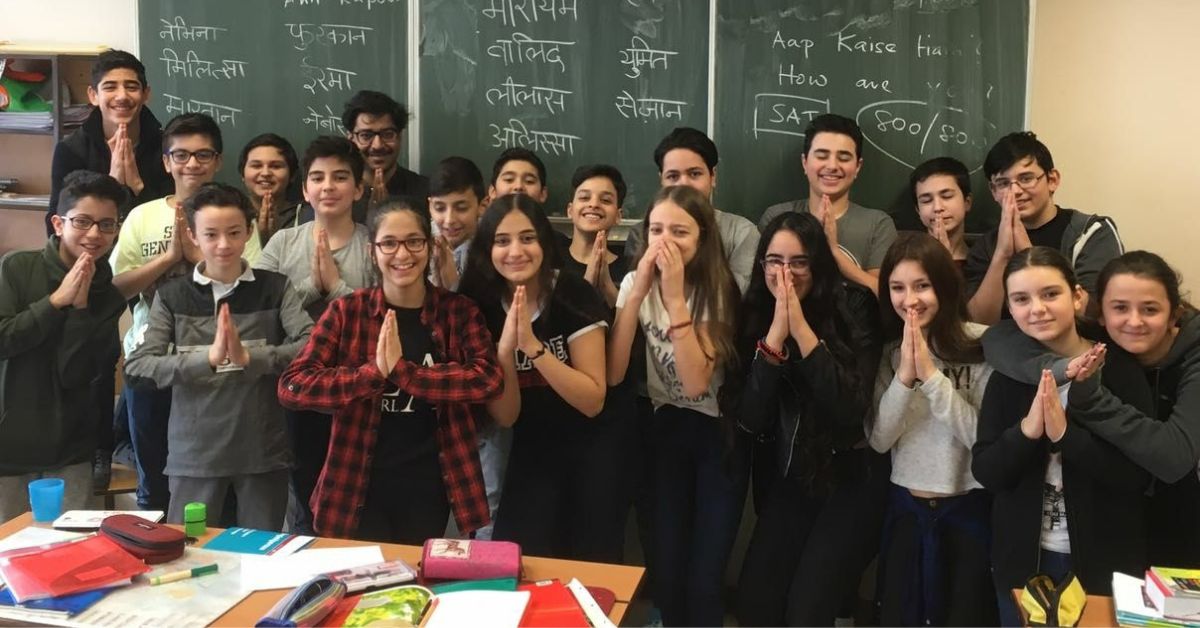 Satyam Mishra was part of Teach For Austria during his trainings across the globe
Satyam Mishra was part of Teach For Austria during his trainings across the globe
Education cannot be a prerogative of those ‘lucky enough’ to access world-class resources, Satyam learnt while working with the Teach For All network — a global community of changemakers developing collective leadership to ensure all children can fulfil their potential. Instead, education must work on the premise of equity.
“Think of it this way,” Satyam urges, “Through these teacher trainings, even a teacher, who might not have the resources to explore other countries of the world and their teaching methods, will have a chance to become an evolved educator.” The programme, while dismantling the dependency on age-old teaching methods, will give new methods an impetus.
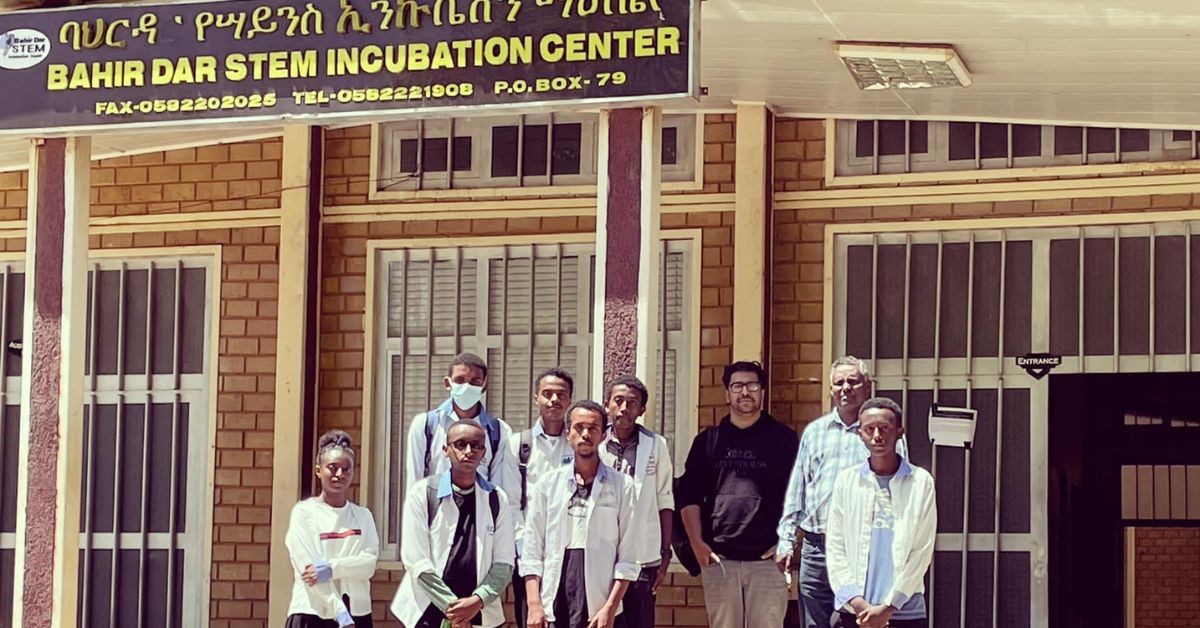 During his tenure as the Regional Director, Bahir Dar, Amhara for Teach For Ethiopia, Satyam executed a child protection policy against corporal punishment
During his tenure as the Regional Director, Bahir Dar, Amhara for Teach For Ethiopia, Satyam executed a child protection policy against corporal punishment
These projects also give him a chance to create a tangible, lasting impact in schools. For instance, in 2022, during his tenure as the Regional Director, Bahir Dar, Amhara for Teach For Ethiopia, Satyam executed a child protection policy which ceased corporal punishment, a commonplace in Ethiopian classrooms, in 17 schools.
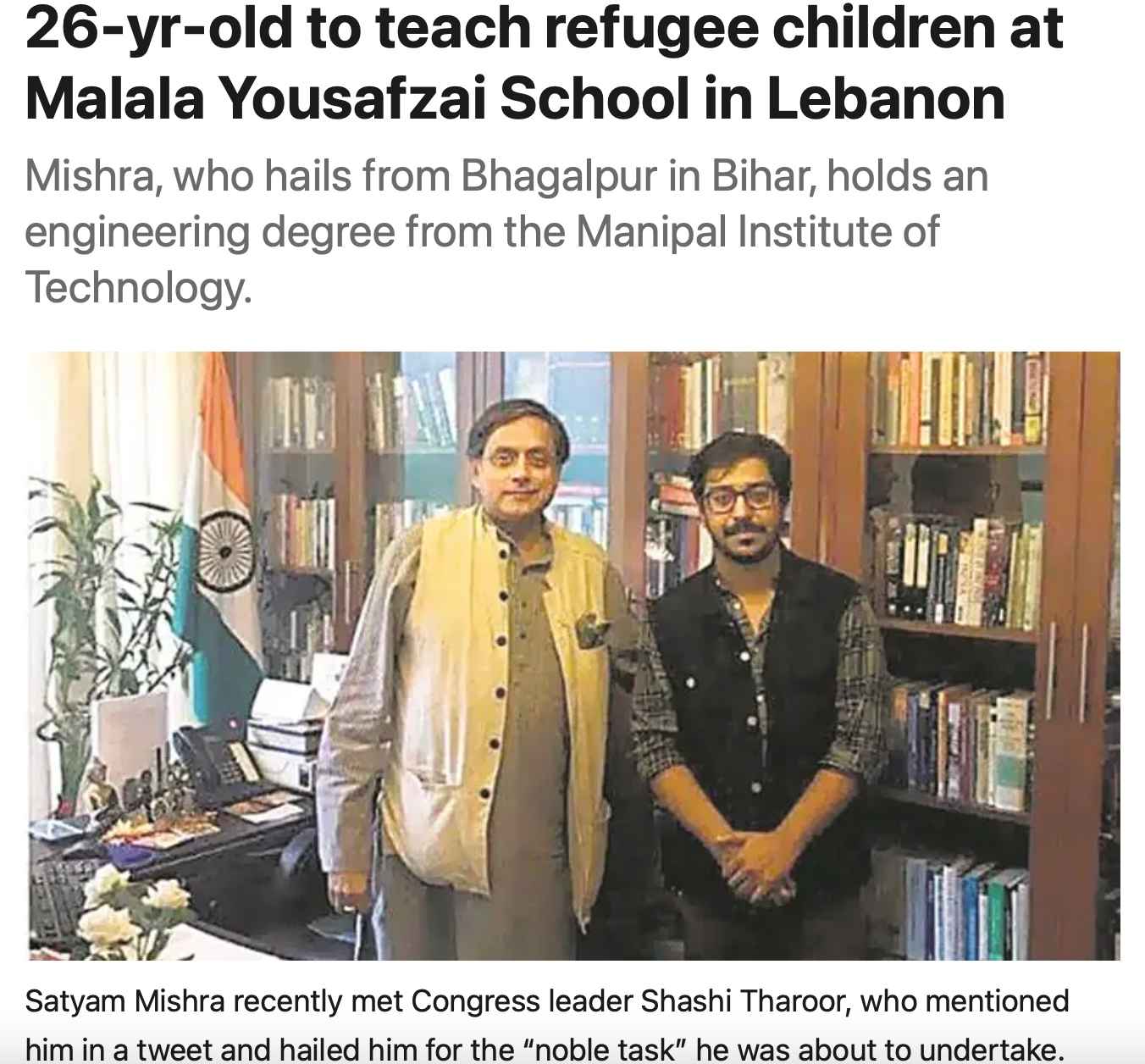 Satyam was invited to teach at the Malala Yousafzai All Girls’ School, a school founded by Human Rights Activist and Nobel Laureate Malala Yousafzai in Lebanon’s Bekaa Valley
Satyam was invited to teach at the Malala Yousafzai All Girls’ School, a school founded by Human Rights Activist and Nobel Laureate Malala Yousafzai in Lebanon’s Bekaa Valley
The years have been coloured with such experiences. But ask Satyam to pick a life-changing one from his archives, and he backtracks to 2017 when he was invited to teach at the Malala Yousafzai All Girls’ School, a school founded by Human Rights Activist and Nobel Laureate Malala Yousafzai in Lebanon’s Bekaa Valley. “I had been reading up about the refugee crisis and exploring what I could do. Then, during the summer of 2016, while doing an internship at IIM Ahmedabad, I got to know about the Malala school.”
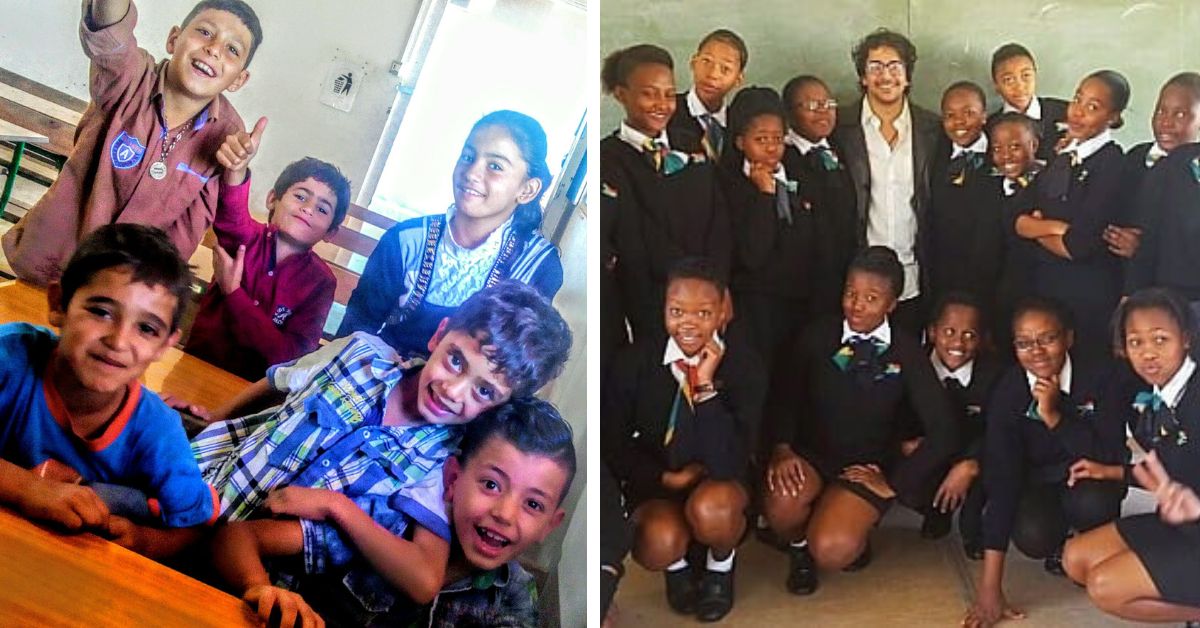 Satyam recalls his experiences of teaching in schools across Syria (L) and Johannesburg (R) during his teacher training across the globe
Satyam recalls his experiences of teaching in schools across Syria (L) and Johannesburg (R) during his teacher training across the globe
Fun fact: Satyam, unfamiliar with the lingua franca, was given the same translator as Malala. “It was an experience I will always remember,” he smiles.
The school offers education and skills training to female refugees aged 14 to 18, giving him a front-row seat to new models of education at play that transcend the definition of conventional academics.
It also marked a first for him in a crisis-affected area. About his experience, he says, “War zones are dangerous and difficult. But I was amazed to see how people had made peace with their situation. There was a sense of calm. I was amazed by their resilience.”
‘At 7, I realised the power of education’
A seven-year-old Satyam recalls his favourite pastime as being quizzed by his 72-year-old grandmother — “What does this word mean?” “What are they saying in the news?” It didn’t take him long to realise his grandmother wasn’t testing his knowledge; she couldn’t read or write.
And so, at seven, Satyam became a tutor, helping his dadima (grandmother) with the nuances of English. The day Satyam was promoted to Class 4, there were extra mithais (Indian sweets) in the Mishra house — a double celebration if you will. After all, dadima had just become officially literate. Satyam recalls the innocent pride he felt at the time — “I had the power to make someone literate.” His success with his first student gave him the confidence to start dreaming beyond his home turf — beyond Bhagalpur.
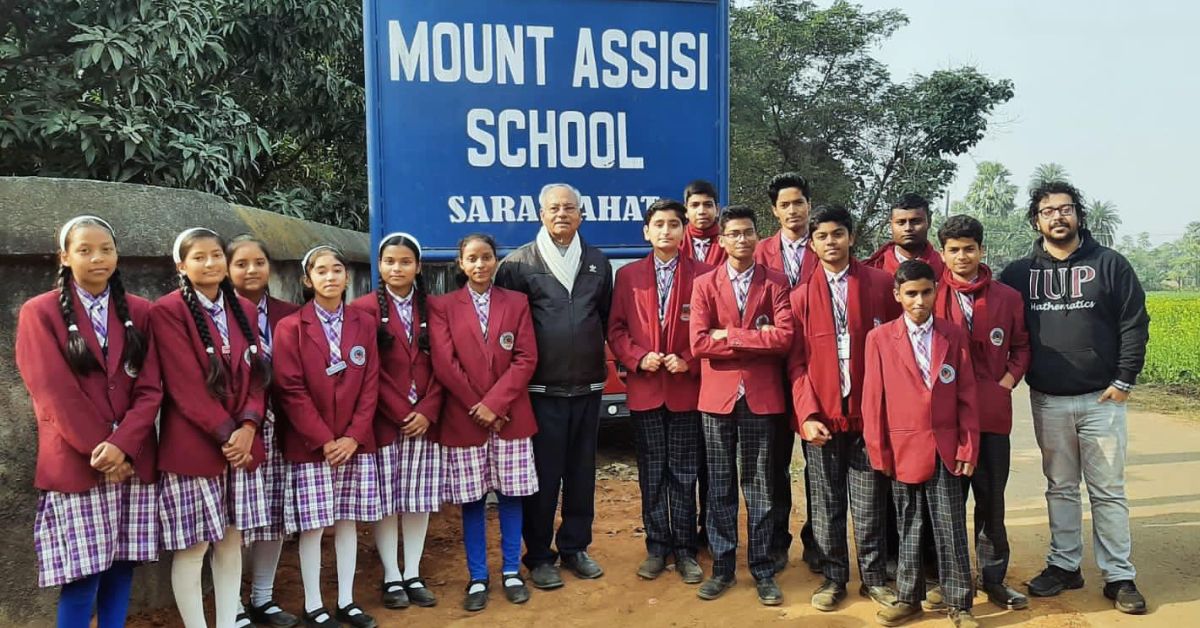 Satyam assisted in teacher trainings at the Mount Assisi School in Saraiyahat
Satyam assisted in teacher trainings at the Mount Assisi School in Saraiyahat
The realisation of this superpower that he possessed was also the plausible reason for his shift from engineering to teaching. The segue did not surprise the family, who came from a long line of teachers across four generations. It was fated, they thought.
Satyam’s foray into teaching began with Teach For India, the Pune chapter.
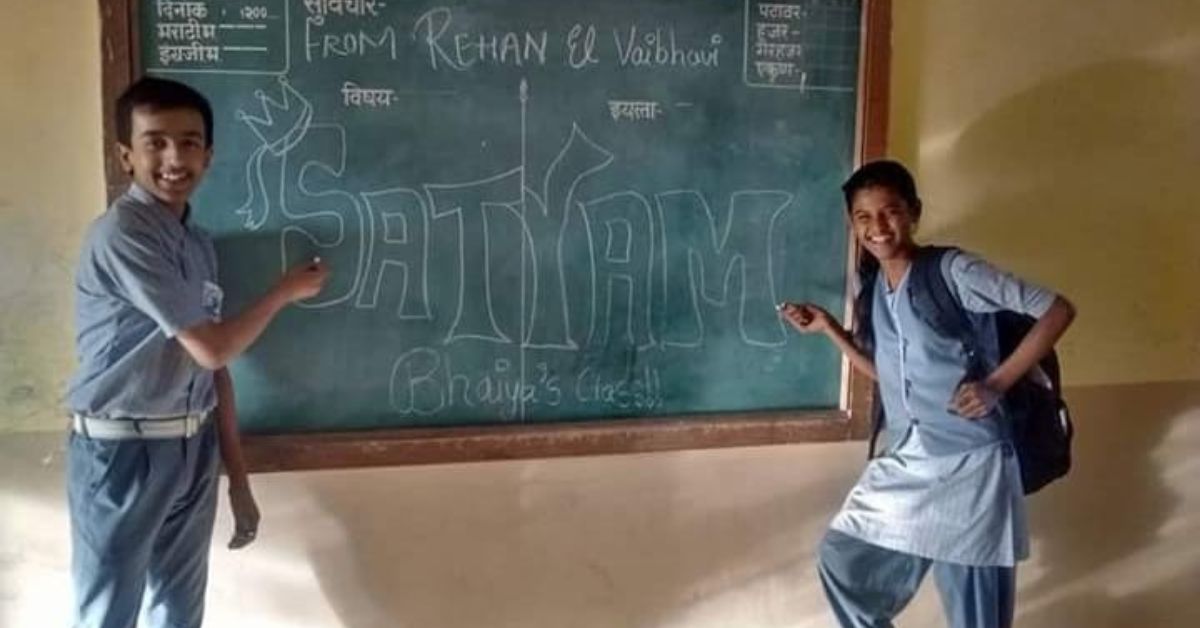 Satyam was one of the most loved math professors during his time at Teach For India, Pune chapter
Satyam was one of the most loved math professors during his time at Teach For India, Pune chapter
Every morning as he stepped into the Class 9 room, he would be greeted by a hollering of ‘Maths baba ki jai (All hail the maths wizard)’. Jaymala Pawar, the school helper, would intently watch the show, observing that Satyam made maths seem less wicked than she’d thought it to be. In 2000, Jaymala had been so terrified of maths that she’d skipped her board exams. “I’ll help you attempt them,” Satyam promised her one day.
The next few months were filled with extra coaching, helping Jaymala circumvent tough concepts and in 2016, she attempted the board exams and cleared on her first try. No prizes for guessing the subject she found easiest.
Satyam’s journey as a teacher was as compelling as his current one as a teacher trainer. Whether it was challenging ossified learning methods, innovating avant-garde approaches to concepts or simply sharing his learnings with his students.
His nomadic teaching career has stretched his understanding of the potential of teaching. Tell him he’s done some cool work and he’ll shy away from it — “I’m just getting started.”
‘If I can do it, you can too’
Growing up, Satyam believed Harvard and Hogwarts were one and the same. You can’t blame him. Both are equally aspirational. In fact, both had an element of magic, Satyam discovered when he was offered a scholarship in March 2024 that promised to cover 83 percent of his tuition fees. His younger self would have discounted this as a fantasy, he says.
Recalling how it unfolded, Satyam shares, “My professors encouraged me to apply to Harvard while I was pursuing my Fulbright scholarship in the United States.” Satyam was one of the six teachers selected by the U.S. Department of State and the Fulbright Commission in India to pursue research in teacher training pedagogy.
Harvard was the only university he applied to for a master’s degree in education (Ed.M), and the rest is history. He emphasises the kind of equity the institute prides itself on — circumstance is no talent differentiator. Satyam cites his example, recalling his humble beginnings in Bhagalpur.
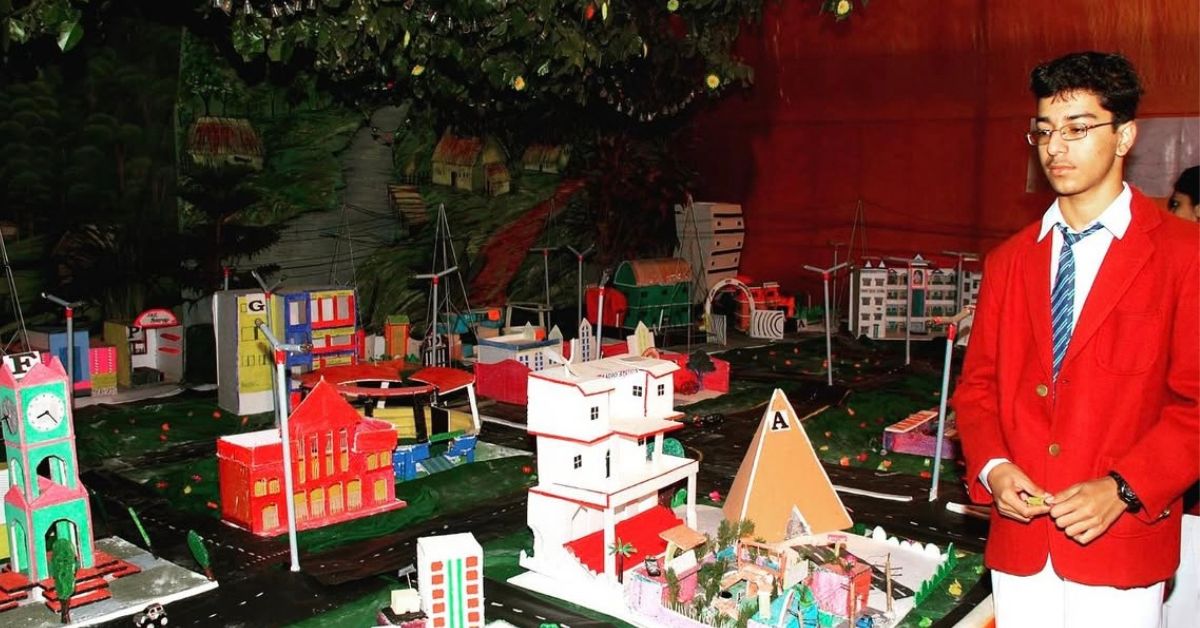 Satyam grew up in Bhagalpur, Bihar, with a childhood and youth juxtaposed against the riots that the city was recovering from
Satyam grew up in Bhagalpur, Bihar, with a childhood and youth juxtaposed against the riots that the city was recovering from
Once known as the ‘silk city of India’, Bhagalpur was devastated by the 1989 communal riots. The city was shattered, and Satyam’s childhood was blotched with tough circumstances. But he drew inspiration from his grandfather, Nishikant Mishra, a freedom fighter, who kept reiterating that the true meaning of life could be found in serving others.
“When my grandfather was in the freedom struggle, people would tell him to quit, saying that the British Empire had a stronghold. But he kept going. He was even arrested for 18 months in 1942.” Nothing could deter Nishikant and Satyam’s inherited art of blocking out critique while pursuing their calling.
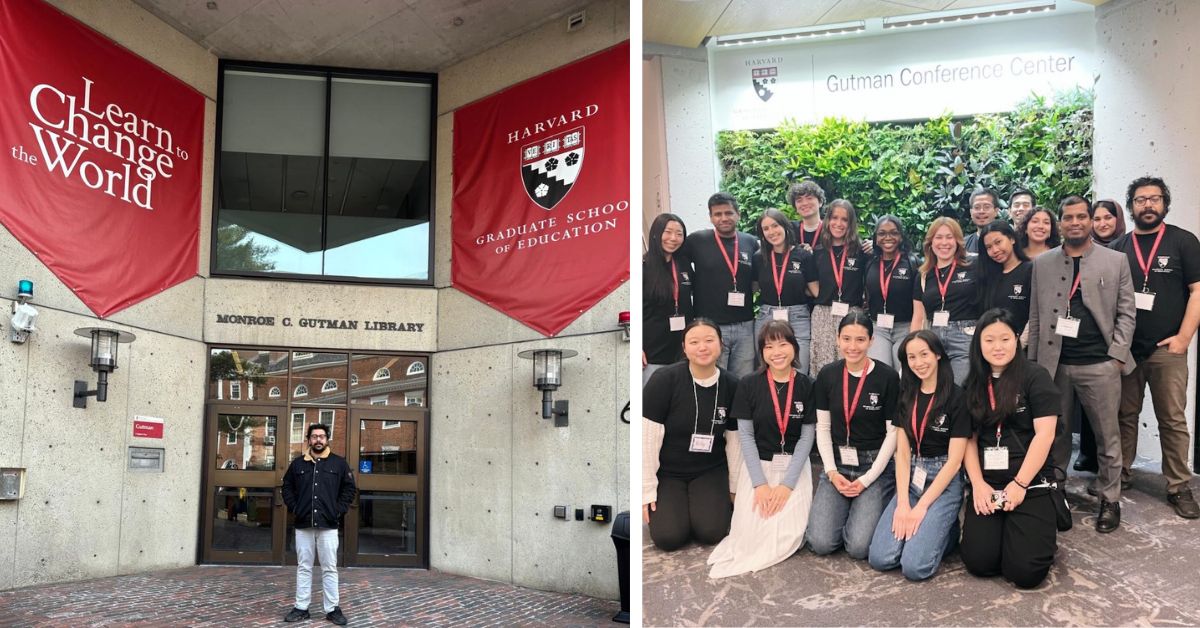 At Harvard, Satyam is learning the nuances of taking education to the most underserved regions of the world in order to scale accessibility to quality teaching methods
At Harvard, Satyam is learning the nuances of taking education to the most underserved regions of the world in order to scale accessibility to quality teaching methods
From the moment he would set foot in Bhagalpur during visits home, taunts of ‘Yeh kar kya raha hai? (What does he even do?)’ would tail him around, sometimes in the form of a point-blank question posed by a brave uncle, other times enveloped in hushed whispers.
Then, in September 2021, when Satyam was announced as a finalist for the Global Teacher Prize — the newspapers mentioned that he would be awarded 1 million dollars (translating to 7 crore Indian rupees at the time) — the uncles changed their stance. They shook his father’s hand and mouthed the same words, ‘Yeh kar kya raha hai!’. Note the change in tone.
Perception is everything, Satyam realised. In a moment, teaching had taken on a new meaning from something unrewarding to a cultural cachet.
But even as society debates its connotations, the truth remains that the world needs teachers. Without them, millions of dreams would hang in the balance. Somewhere in Iraq, Woleed dreams of becoming an architect to rebuild hope in his city. And, it’s only a teacher who can make his dream come true.
Edited by Vidya Gowri Venkatesh, All pictures courtesy Satyam Mishra
Sources
News